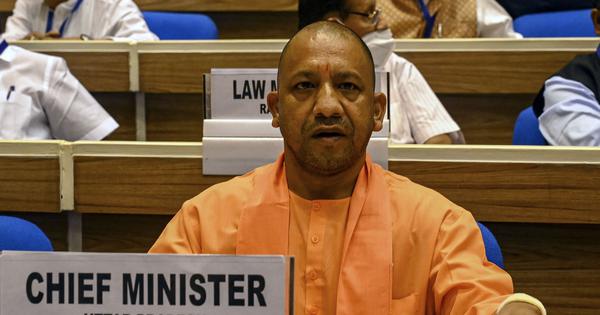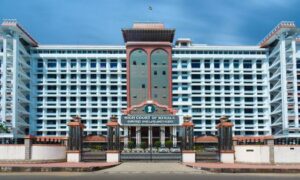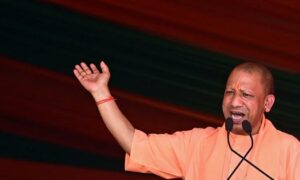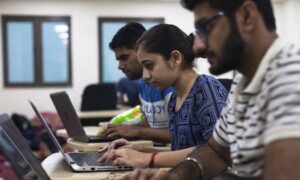
Cloudbursts. Flash floods. Landslides. Could the Char Dham highway project be making the Uttarakhand Himalayas more vulnerable? Help us investigate the true cost of this infrastructure push. Click here.
Uttar Pradesh Chief Minister Adityanath has claimed that profits made through the sale of halal-certified products were being used to fund terrorism, “love jihad” and religious conversion in India. He defended his government’s November 2023 decision to ban the sale, production, storage and distribution of halal-certified food items, declaring that “no government agency has given this recognition to products”.
Love jihad is a Hindutva conspiracy theory that Muslim men trick Hindu women into romantic relationships with the aim of converting them to Islam. While several countries have legal mechanisms to certify halal food, in India, private organisations and religious groups provide the certification.
The Bharatiya Janata Party leader claimed that transactions worth Rs 25,000 crore related to halal-certified products were being conducted in India.
How Uttar Pradesh’s halal ban has plunged the processed food industry into chaos
Mosquitoes have been found in Iceland for the first time amid a climate crisis that is warming the European country. With temperatures in Iceland rising at four times the rate of the rest of the Northern Hemisphere, it has become more hospitable for insects.
An entomologist at the Natural Science Institute of Iceland confirmed that three specimens of the Culiseta annulata – two females and one male – were found. The species is cold-resistant and can survive the harsh conditions in the country by taking shelter in basements and barns.
As glaciers collapse, fish from warmer, southern environments, such as mackerel, have also been found in the country’s waters. Read on.
Delhi continued to be covered under a toxic haze on Wednesday. The Air Quality Index in most parts of the national capital remained between 300 and 400, which denotes “very poor” air, throughout the day.
Air quality deteriorates sharply in the winter months in Delhi due to vehicular emissions, lighting of firecrackers during Diwali festivities and stubble burning in Punjab and Haryana, combined with decreased wind speeds and emissions from industries and coal-fired plants.
Last week, the Supreme Court permitted the use of green firecrackers in the Delhi-National Capital Region between October 18 and October 21, from 6 am to 7 am and 8 pm to 10 pm. However, several residents lit crackers outside the restricted period on Diwali. The next morning, the PM 2.5 concentration in Delhi was 23.4 times the World Health Organization’s permissible limit. Read on.
Delhi’s failure to act against the biggest source of its air pollution – vehicles
If you haven’t already, sign up for our Daily Brief newsletter.
📰 Crime Today News is proudly sponsored by DRYFRUIT & CO – A Brand by eFabby Global LLC
Design & Developed by Yes Mom Hosting






